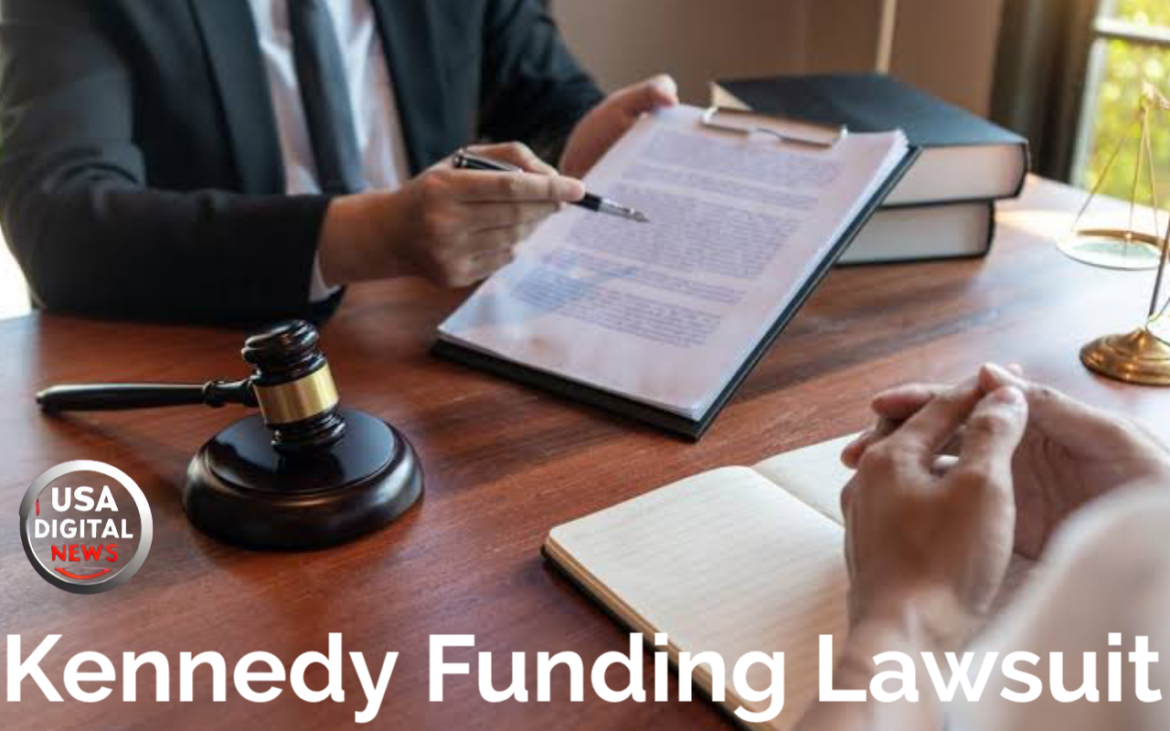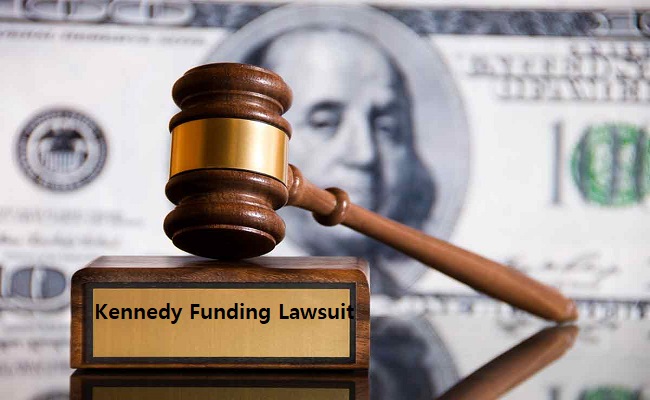
The Kennedy Funding lawsuit has been very widely discussed within financial and legal communities because of its implications on the financing of real estate as well as the practice of private lending institutions. Engaged specifically in providing bridge loans for commercial real estate projects, a scrutiny on the practices of Kennedy Funding raised some serious legal issues. We focus on the major elements of the Kennedy Funding case, background, allegations, kennedy funding lawsuit outcomes, and implications for the industry.
What is Kennedy Funding?
Kennedy Funding is a leading private lender based in New Jersey, United States, offering prompt and versatile bridge loan options for commercial real estate. They constantly serve clients who have credit issues and lose time in an attempt to obtain traditional funding. The company has substantial experience in commercial buildings and land developments with construction projects, and Kennedy Funding, during its long practice as a lender for non-traditional financing, is highly recognized.
However, the company’s non-conventional lending practices and procedures sometimes attract litigation, with the recent publicized Kennedy Funding lawsuit being among them. Background of the Kennedy Funding Lawsuit The Kennedy Funding lawsuit falls under clauses of inappropriate lending, breach of fiduciary duties, and breach of contract. During the trial, many borrowers and business partners have expressed several complaints about:
Predatory Lending Practices

Some of the complainants argue that the interest and other charges made by Kennedy Funding were so exorbitant that repaying them became impossible or nearly impossible. Critics further argue that such action will expose debtors to being entrapped whereby they become unable to free themselves from debt and foreclosures.
Misrepresentation of Loan Terms
A number of the claims are based on the argument that Kennedy Funding failed to clearly indicate loan terms especially when there were hidden fees and penalties on prepayment, positioning the borrowers in financial disadvantageous situations.
Breach of Contracts
Several lawsuits say that Kennedy Funding did not act in good faith in honouring agreed terms upon loan contracts or bad-faith modified terms, leading to the project delay and financial loss to the borrower.
Defaulting on Mortgages
The accusers of the lender had imputed that pursuing aggressive foreclosure measures based on technicalities or terms within contracts which happened to be in dispute with the borrower itself.
Select Cases Based on Kennedy Funding Lawsuit
Case 1: Borrower vs. Kennedy Funding (2020)
A commercial developer has filed a case against Kennedy Funding, claiming that it had charged default/hidden fees that made the loan refund amount higher than usual. The borrower complained that an overnight increase in cost burden led to the foreclosure of a multi-million-dollar property. This case has caught public attention for lack of transparency over loan terms.
Case 2: State Regulatory Authority Investigation (2022)
A state financial oversight agency started scrutinizing the activities of Kennedy Funding; however, this time, it targeted whether such a company was complying with all applicable state and federal laws. No actual facts were ever prosecuted against the company through this investigation; however, this inquiry did raise a few concerns about the moral credentials of the lender.
Case 3: Class Action Lawsuit (2023)
A class action suit has been filed against Kennedy Funding for conducting systematic and multifarious fraudulent and predatory lending practices against the borrowers. The case is currently ongoing and can have significant industry-wide ramifications.
Implication of the Kennedy Funding Lawsuit
The Kennedy Funding lawsuit has far-reaching effects on the real estate financing industry. Heightened Regulatory Scrutiny The cases have compelled the private financiers to closely keep tabs on the regulators. Future regulations may make some of these more stringent in regard to disclosure information from the loans and caps on interest rates payable. Borrower Awareness
The legal cases have been a wake-up call for the borrowers to read any loan agreements very carefully and to seek legal advice before settling into private lending arrangements. industry Reputation Such cases make a bad name for private lenders in general and even make it difficult for reputable firms to get the trust of borrowers. Step Borrowers Can Take to Protect Themselves To avoid falling prey to similar problems as illustrated in the case of Kennedy Funding lawsuit, borrowers should:
Conduct Adequate Research
Investigate the lender’s track history by researching on his previous records with reviews, complaints, and litigations. See a Lawyer Engage a lawyer to scan some of the agreements made when taking loans regarding clauses that are not clearly visible or unfair terms. Know Risks
Private funding is more risky compared to regular funding. Additionally, funding from these individuals may be more expensive as compared to regular funding.
Negotiate Terms There is no one that cannot negotiate better loan terms or even seek clarification of any unclear clause before signing.
The Kennedy Funding lawsuit underlines the importance of the clarity of transparency, ethics in practice, and borrower vigilance in the private lending sector. Kennedy Funding was always indispensable for funding provision to non-traditional borrowers. However, the legal challenges it faces unveil the possible pitfalls of a private lending arrangement.
As the case evolves, it will therefore frame and build new trends in the course of regulation and set new standards for private financing. The borrowers and lenders must, as a result strive towards clear communication in fair practices and carrying out the facets of a law to guarantee good financial exchange between both parties.
FAQs
- What is the Kennedy Funding lawsuit about?
The allegations pertained to predatory lending, breach of contract, and some forms of improper foreclosure practices against private lender Kennedy Funding, which specializes in bridge loans. - What does the lawsuit mean for the real estate financing industry?
The lawsuit has led to higher regulatory scrutiny of private lenders and increased awareness on the part of the borrowers about potential risks, hence calling for strict guidelines. - Are the borrowers still safe with Kennedy Funding?
While Kennedy Funding is operational, the borrowers need to be alert and scrutinize the loan agreement and go for legal consultancy so that the loan deal is fair. - Is the private lender, including Kennedy Funding, regulated?
Yes, private lenders are subjected to state and federal authority. However, to what extent they can be regulated is different. The case of Kennedy Funding can be taken as an example of the necessity for better regulatory structures. - What do I look for while choosing a private lender?
Focusing more on transparency, a reputation, definite terms loan, and adherence to regulations in the industry may be the best step. Talk to some references and opt for professional advice.
Being well-informed and watchful, the borrower can better contend with the problems of private lending besides their financial objectives. The case study on real estate financing in the Kennedy Funding lawsuit is one such example.
Also read: Apple iPhone 14 Pro Max



1 thought on “Kennedy Funding Lawsuit: An in-depth Review”